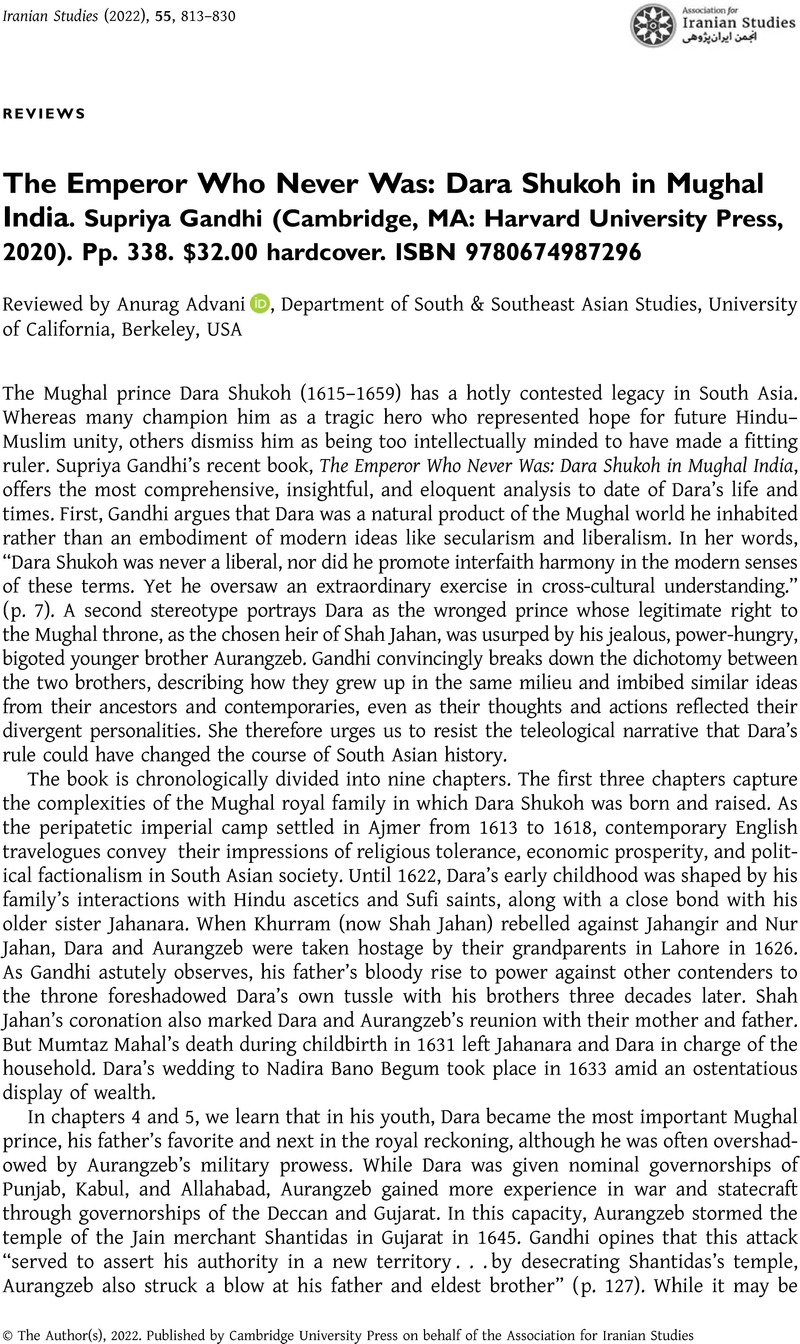No CrossRef data available.
Article contents
The Emperor Who Never Was: Dara Shukoh in Mughal India. Supriya Gandhi (Cambridge, MA: Harvard University Press, 2020). Pp. 338. $32.00 hardcover. ISBN 9780674987296
Review products
Published online by Cambridge University Press: 14 July 2022
Abstract

- Type
- Review
- Information
- Copyright
- Copyright © The Author(s), 2022. Published by Cambridge University Press on behalf of the Association for Iranian Studies
References
1 See Kinra, Rajeev, “Infantilizing Bābā Dārā: The Cultural Memory of Dārā Shekuh and the Mughal Public Sphere,” Journal of Persianate Studies 2, no. 2 (2009): 165–93CrossRefGoogle Scholar; D. Faruqui, Munis, “Dara Shukoh, Vedanta, and Imperial Succession in Mughal India,” in Religious Interactions in Mughal India, ed. D. Faruqui, Munis and Dalmia, Vasudha, 30–64 (New Delhi: Oxford University Press, 2014)CrossRefGoogle Scholar; Alam, Muzaffar, “In Search of a Sacred King: Dārā Shukoh and the Yogavāsiṣṭhas of Mughal India,” History of Religions 55, no. 4 (2016): 429–59CrossRefGoogle Scholar.
2 See Jaffery, Nausheen, Jahan Ara Begum: A Biographical Study (1614-1681) (New Delhi: Idāra-yi Adabiyāt-i Dehlī, 2011)Google Scholar; Bokhari, Afshan, Imperial Women in Mughal India: The Piety and Patronage of Jahanara Begum (London: I. B. Taurus, 2015)Google Scholar; Alam, Muzaffar, The Mughals and the Sufis: Islam and Political Imagination in India, 1500–1750 (Albany, NY: SUNY Press, 2021), 259–330Google Scholar.



